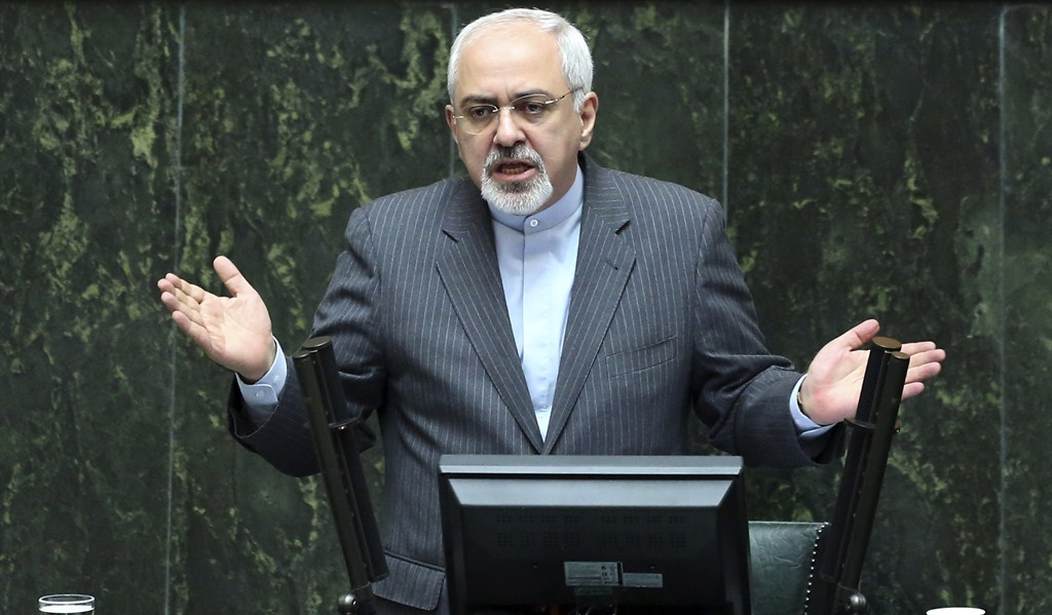What's going on between Washington and Teheran of late? Here are a few quotations from the files that sum up the whole, old story:
"The settlement of the Czechoslovakian problem which has now been achieved is, in my view, only the prelude to a larger settlement in which all Europe may find peace. This morning I had another talk with the German Chancellor, Herr Hitler, and here is the paper which bears his name upon it as well as mine. Some of you, perhaps, have already heard what it contains, but I would just like to read it to you: '... We regard the agreement signed last night and the Anglo-German Naval Agreement as symbolic of the desire of our two peoples never to go to war with one another again.' ...
"My good friends, for the second time in our history, a British prime minister has returned from Germany bringing peace with honor. I believe it is peace for our time."
--Prime Minister Neville Chamberlain speaking September 30, 1938, on his return from the Munich Conference.
"Today, the United States -- together with our close allies and partners -- took an important first step toward a comprehensive solution that addresses our concerns with the Islamic Republic of Iran's nuclear program.
"Since I took office, I've made clear my determination to prevent Iran from obtaining a nuclear weapon. As I've said many times, my strong preference is to resolve this issue peacefully, and we've extended the hand of diplomacy. Yet for many years, Iran has been unwilling to meet its obligations to the international community. So my administration worked with Congress, the United Nations Security Council and countries around the world to impose unprecedented sanctions on the Iranian government.
"These sanctions have had a substantial impact on the Iranian economy, and with the election of a new Iranian President earlier this year, an opening for diplomacy emerged. I spoke personally with President Rouhani of Iran earlier this fall. Secretary Kerry has met multiple times with Iran's Foreign Minister. And we have pursued intensive diplomacy -- bilaterally with the Iranians, and together with our P5-plus-1 partners -- the United Kingdom, France, Germany, Russia and China, as well as the European Union.
"Today, that diplomacy opened up a new path toward a world that is more secure -- a future in which we can verify that Iran's nuclear program is peaceful and that it cannot build a nuclear weapon...."
--President Barack Obama speaking November 23, 2013 on the conclusion of talks with Iran at Geneva.
"Everything was all set. The scenery had been painted, the lighting arranged, the actors given their lines and put through their paces. The proper air of suspense had been maintained throughout the opening acts, and now the curtain was about to rise on the grand finale. The management wasn't quite ready to admit it, maybe even to itself, but the Happy Ending had already been written. All the players had to do was follow the script. The supporting cast of foreign ministers from far and wide -- from Teheran to Paris, from Moscow even unto Beijing -- was in the wings and ready to go on with the show....
"The stars were already practicing their bows. One by one they had arrived at the Geneva Cabaret to take their places backstage. And what an assemblage they were: the representatives of six world powers -- the United States, Great Britain, France, Germany, Russia and China (the one on the mainland). Plus one more country that very much wanted to be a world power: Iran. Then it would be lights, camera, action!
"It promised to be the diplomatic blockbuster of the year, maybe the century. The most convincing performance since the one at Munich in 1938, the one that had assured Peace in Our Time, or so the rave reviews had declared. Now, in Geneva, the curtain was about to go up on the Signature Accomplishment of this president's foreign policy -- an end to Iran's plans for a nuclear weapon. It would be a fitting match for his Signature Accomplishment in domestic policy, the one that bears his name even if he might wish it didn't: Obamacare.
"The big show in Geneva was all a sham, of course. But the suspense had to be maintained. Nobody in the administration was allowed to reveal the ending, at least not on the record. The script doctors at the White House had faced a hard choice: Either keep Iran from developing a Bomb of its own or settle for containing that fanatical regime after it had one. By now it was clear that the choice had been made, no matter how many times this administration denied it: Teheran would be allowed to have its Bomb and Washington would worry about how to contain a nuclearized Iran later. Good luck.
"It was all there in the script: Iran would publicly (if only publicly) forsake its plan to join the world's Nuclear Club, and in turn the West, with the eager support of the Russians and Chinese, would back off its economic sanctions against that country -- just as those sanctions were having their desired effect. ... The natives were growing restless, and so Teheran had to pretend it was ready to forsake its plans for a nuclear weapon. And the deal was set for the signing; it was all over but the cheers and applause. Give 'em a happy ending every time. ... At least for a while."

























Join the conversation as a VIP Member